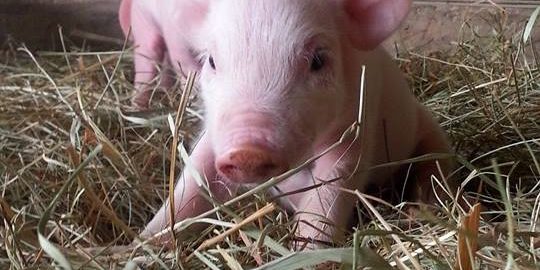The agriculture community is vast and continues to not only grow, but also to develop new practice methods. In a field so large not only can it be difficult to be well versed on all its subject matter, but it is also easy to find information that is subjective as opposed to objective. As an intern at the Animal Agriculture Alliance, my experiences have exposed me to the wide scope of information being shared along with those who are sharing it. In short, I have acknowledged the importance of the connection that needs to be made with all sides of the spectrum regarding individuals and their eating habits.
A Growing agriculture Community
Like many people I do not have a background in agriculture. Agriculture was not a field I had involvement in until I took my first agriculture science class as a freshman in high school. The class exposed me to the unspoken truth that was made notable by Brenda Schoepp.
“Once in your life you may need a doctor, a lawyer, a policeman, and a preacher but every day, three times a day, you need a farmer.”
Brenda Schoepp

It is when I finally understood this truth that I knew I wanted to become more vocal in speaking out on issues of concern for our nation’s farmers and ranchers.
A Need for Effective Communication
Currently, there is a great need to bridge the communication gap regarding the truth that serves as the backbone of American animal agriculture. America’s farmers and ranchers have faced combative comments from animal activists as well as animal rights organizations. They want to know what the agriculture community’s defense is and explain again how farmers and ranchers care. These comments are all confrontational in nature, but by following two steps when responding to – or proactively confronting – these comments the agriculture community can take progressive strides forward regarding farmer’s sincere consideration for animal welfare.
Focus on a particular segment of the agriculture community
Animal agriculture encompasses many different species and topics, such as animal welfare. Focus on a particular topic such as pigs, chickens, beef cattle, etc. With all of the different species, there are different farmers and ranchers utilizing different techniques. Because of this, farmers frequently specialize in one of the livestock or poultry species. With this specialization, farmers and ranchers can not only provide more tailored care and welfare practices for their animals, they can also provide specifically designed nutrition plans and specially designed housing. Consumers are hungry to know more about their food. By highlighting the benefits of specialization through focusing on the information about particular species, the consumer can see the emphasis farmers and ranchers put on animal welfare.
Provide facts
Consumers want to know where their food is coming from. By providing facts and adding them to anecdotes of farmers utilizing these practices, information will be better retained. Farmers are constantly learning about new practices and systems they can use to raise their livestock, similarly to how consumers are constantly learning about where their food is coming from. As the majority of consumers are more than two generations removed from the farm, it is difficult to fully understand why farmers do what they do. This is why we encourage consumers to do their own research and decide for themselves what they should eat or not eat. In today’s world, food labels are becoming harder and harder to read, therefore, farmers are trying to be open about how their livestock is raised. The facts about your food are out there, go get them.

Continue Your Education
President Kennedy said, “Our farmers deserve praise, not condemnation; and their efficiency should be cause for gratitude, not something for which they are penalized.” Then and now, the education of agriculture needs to be continuously spread. By being specific in the information being shared and providing facts along with anecdotes the true face of animal agriculture will leave no room for contentious questions. Never stop learning because agriculture never stops teaching.
All posts are the opinion of the author and do not necessarily represent the view of the Animal Ag Alliance.








